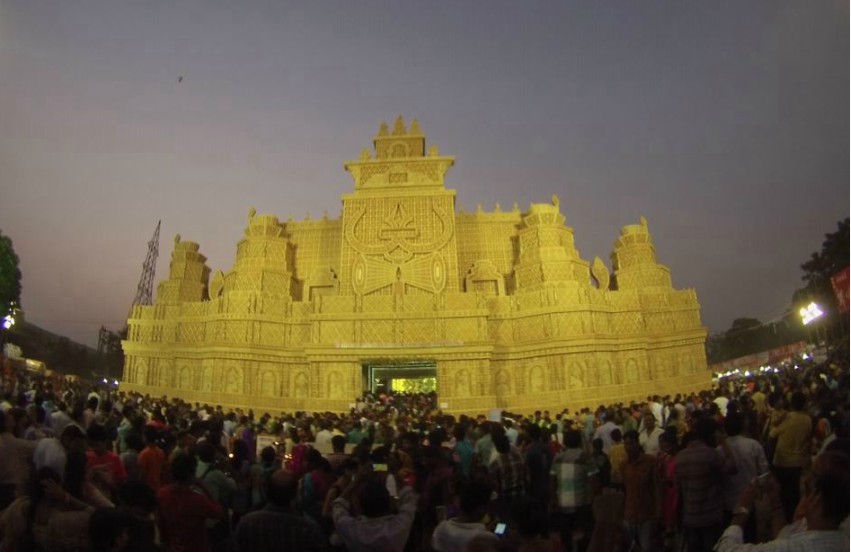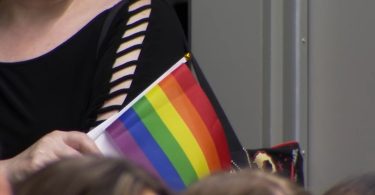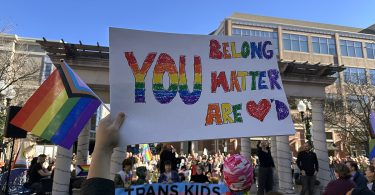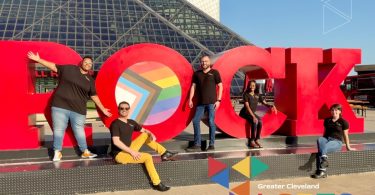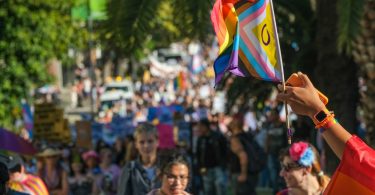Bhubaneswar in India is about to host its first Pride parade. | Photo: Facebook/Discover Bhubaneswar
Gay sex is illegal in India and the LGBTI community faces a lot of persecution, but Pride parades are still popular. They’re a good way to show Indians that LGBTI people exist and they’re fabulous.
But not every city or even every state in India has come far enough to host a Pride parade.
For LGBTI people in the tiny eastern state of Odisha, life can be really tough. From regional areas to the state capital, Bhubaneswar, many experience mental health issues.
‘They are often isolated for being what they are, more prone to depression and sexual harassment, disowned by their families or discriminated at their workplaces and take years to convince themselves that it is a “phase” that will pass, or a disease, or something that needs meditation or medication,’ Bijaya Biswal, the organizer of the inaugural Bhubaneswar Pride told Gay Star News.
So Biswal along with some other LGBTI people decided their city needed better visibility for the community. Not just so LGBTI people could parade, but to show those living in hiding they are not alone.
‘Too many people in Odisha suffer from mental health issues, bad marriages and stressful relationships with family members or workplace colleagues because of the burden of being a closeted individual,’ she said.
‘But by building a community, I wanted to facilitate that these people meet others like them and understand they are not alone. That they have others who understand their tragedies and struggles because they have similar stories. Community gives an individual a power to feel at home and that’s exactly what these events have resulted in.’
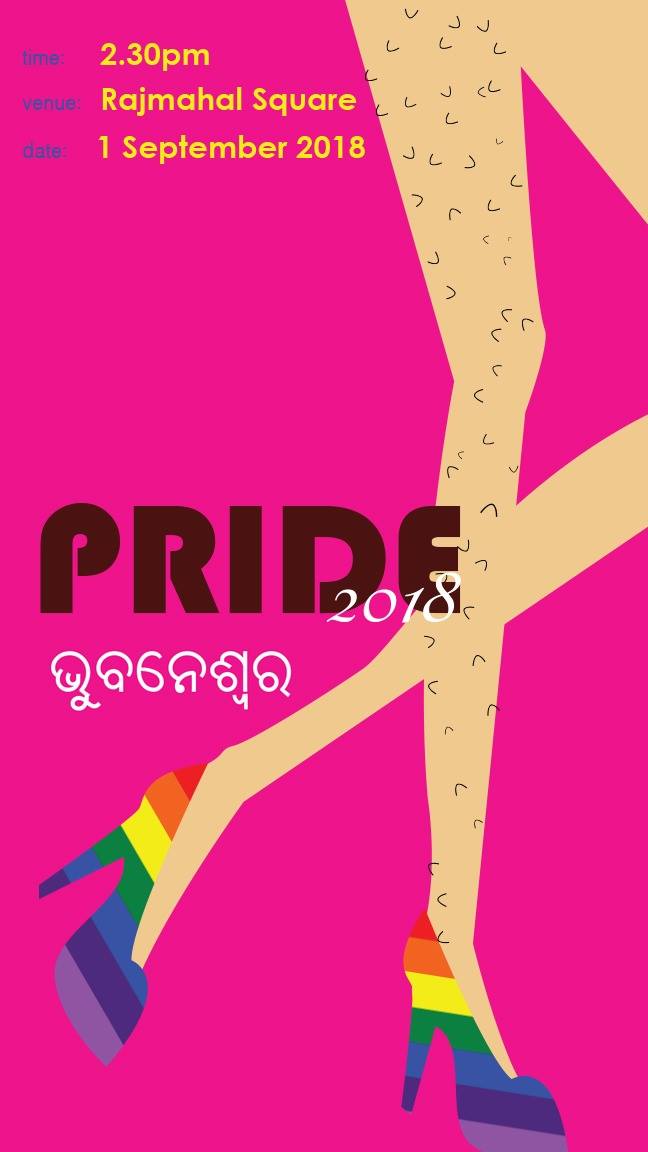
One of the posters promoting Bhubaneswar Pride. | Photo: Facebook
Intersectional, tribal, holy land
Representatives from three LGBTI organizations came together to plan Bhubaneswar Pride which is much more than a parade. So far organizers hosted queer poetry, literature and film nights before the big parade on Saturday 1 September.
‘In the bigger cities, there are established organizations who are working for the LGBTQ. So if you are in Mumbai or Delhi, you know where to go to find people who empathize with you,’ Biswal said.
‘In Bhubaneswar, this community seems missing because its invisible. This event will be a startup for the same, the growing and raising of a voice for the first time regarding the community. Hence, establishing that we are present here and we deserve to be visible.’
Odisha needs locals organizing LGBTI events because of the unique complexities in the state. Odisha’s cultural tapestries make it tricky to try to represent the diverse and hidden LGBTI communities.
‘Odisha is not a state where the majority is upper class. We are made up of the tribes, the construction workers who keep migrating, the displaced villages where industrialists have build their enterprises and the street vendors,’ Biswal said.
The advocate argued for a state like Odisha, LGBTQIA movements cannot exist in isolation. That they must be intersectional.
‘I am addressing not only LGBTQIA specific problems in the Pride, but the general social constructs of “shame”, “untouchability”, the majority deciding what is best for the minorities, class bias and sex discrimination within and outside the community, and the general idea about the freedom of love,’ Biswal said.
‘We will be talking about inclusion in general, from every perspective. Pride is just a stepping stone for our far-fetched dream.’
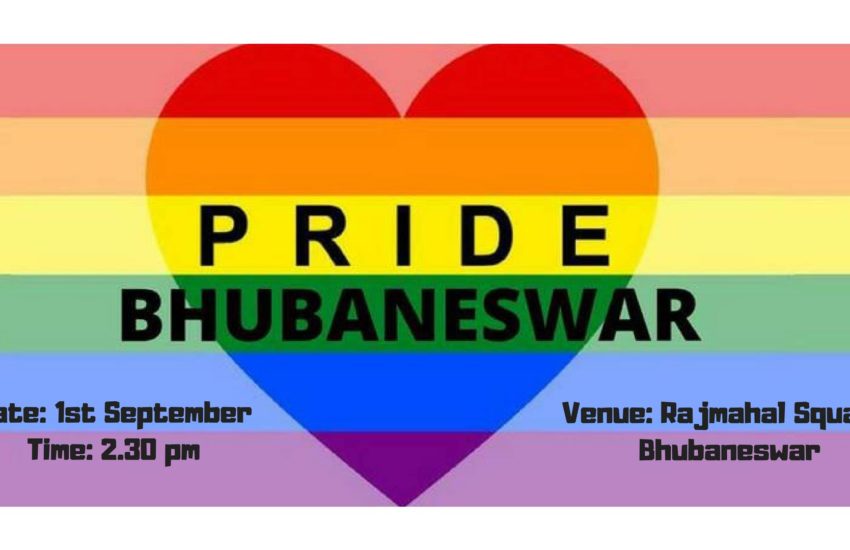
Bhubaneswar Pride is happening on 1 September. | Photo: Facebook
The fight is only just beginning
Biswal wants all kind of people to come along to the Pride parade. From the closeted LGBTI people so they can see themselves on the streets to ‘the homophobics who have malleable mindset’
‘Our events are for all those who need an open discussion regarding this which is so stigmatized in India,’ she said.
‘People from the community, people who are parents to children who identity as LGBTQIA+. [To] teenagers and school students who are still questioning their sexualities, lesbian women and gay men in heterosexual marriages, depression and suicide survivors who have a problem accepting themselves.’
She also hopes to recruit more people into the folds of advocacy and activism.
‘For the small ratio of community members who have made sense of themselves and are not ashamed of it, the fight has just begun. They must live dual lives,’ Biswal said.

